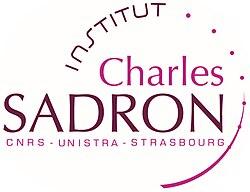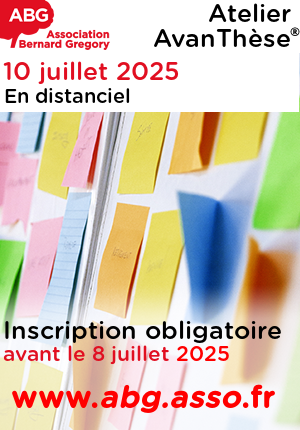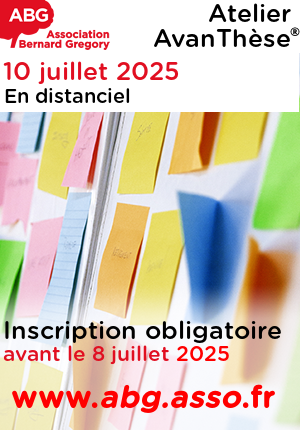Motorised Hydrogels
| ABG-132405 | Sujet de Thèse | |
| 06/06/2025 | Financement de l'Union européenne |

- Chimie
- Chimie
Description du sujet
The ”Monalisa: Motorized Nanomachines: Fundamentals, Innovations, Applications” project is funded by the MARIE SKLODOWSKA CURIE Action - Doctoral Network “MonaLisa”, within the Horizon Europe Programme of the European Commission. The project aims to structure a training network for doctoral students (M/F) in the field of Artificial Molecular Machines for a period of 48 months. Monalisa is a consortium of 20 partners composed of high-profile universities, research institutions and companies located in 5 European countries, and will train 15 Doctoral Candidates.
The doctoral candidates (DC, M/F) will show that by integrating light-driven rotary motors into supramolecular hydrogels, the mechanical work generated during the constant rotation of the molecular machine under UV irradiation will be sufficient enough to trigger a gel-to-sol transition at macroscopic scale. For a broader perspective, the DC (M/F) will demonstrate that the continuous and autonomous work produced by a molecular motor can change the apparent stability constant of a supramolecular (co)-self-assembly. It would illustrate the high potential of such molecular motors by exploiting their continuous unidirectional motion and their cumulative production of mechanical work. This kind of approach in materials science, using artificial molecular motors to transduce various kinds of energy sources in mechanical work, and for potentially releasing bioactive molecules, is of particular interest in order to design an entirely new kind of responsive materials capable of working in out-of-equilibrium conditions, such as those encountered in living systems.
The key tasks as a PhD student (M//F) are:
- To manage and carry out research projects
- To attend and participate in research and training activities within the MonaLisa network and local courses
- To write articles for scientific peer reviews
- To write a PhD thesis
- To teach and disseminate research in the scientific community (international conferences) and non-scientific community, by outreach and public engagement
- To be involved in departmental and group activities
The successful candidates will receive an attractive salary in accordance with the MSCA regulations for doctoral candidates. The generous financial package includes a living allowance, a mobility allowance, and a family allowance (if eligible). The guaranteed PhD funding within MonaLisa is for 36 months. A career development plan will be prepared for each fellow in accordance with his/her supervisor and will include training, planned secondments and outreach activities in partner institutions of the network. The DCs fellows are expected to complete their PhD thesis by the end of the 3rd year of their employment.
Nature du financement
Précisions sur le financement
Présentation établissement et labo d'accueil
The Self-assembled Molecular Systems (SAMS) research group is part of the Foundation and of the Interdisciplinary Thematic Institute on Complex Systems Chemistry (ITI CSC).
The SAMS research group innovates in this fundamental field of research by developing new tools in synthetic organic chemistry, supramolecular chemistry, in the field of molecular machines and for self-assembled materials.
This research group is interested in understanding and controlling self-assembly processes including their dynamics and cooperative effects. This knowledge is expected to generate complex systems, capable of interacting and of adapting to their environment by emergence phenomena. From an application point of view, such properties will be necessary to design the next generation of so-called smart materials.
More information: http://sams.ics-cnrs.unistra.fr/en/
Site web :
Intitulé du doctorat
Pays d'obtention du doctorat
Profil du candidat
We are looking for an outstanding highly motivated candidate (M/F) with a strong academic record holding a master's degree in chemistry. An excellent theoretical background as well as experience in synthetic organic chemistry and/or supramolecular chemistry are a prerequisite. Experience in soft matter materials would be an asset. Skills/Qualifications • Master degree or equivalent in organic chemistry • High proficiency in spoken and written English, minimum C1 level. • Networking and communication skills, to be evaluated in the interview. • Excellent communication as well as organisational skills and willing to engage an international, interdisciplinary collaborative research, workshops and secondments. Candidates (M/F) will be integrated in an international multi-disciplinary team. The candidate (M/F) must therefore have excellent personal skills and be able to work in a team. Women are especially encouraged to apply.
Eligibility criteria In order to be eligible, each applicant (M/F) must fulfill the following criteria:
- Nationality: Candidates (M/F) may be of any nationality. - Mobility: At the date of recruitment, the applicant (M/F) must NOT have resided or carried out his/her main activity (work, studies etc.) in France for more than 12 months in the last 3 years immediately prior to his/her recruitment. Compulsory national service and/or short stays such as holidays are not considered.
- Qualifications and research experiences: the applicant (M/F) must fulfill the requirements defined for Doctoral Candidates (DCs, M/F): DCs (M/F) are researchers who at the date of recruitment have NOT yet been awarded the doctoral degree and are in the first 4 years (full time equivalent) of his/her research career. Full-time research experience is measured from the date when a researcher (M/F) obtained the degree which formally entitled him or her to embark on a doctorate, either in the country in which the degree was obtained or in the country in which the researcher is recruited or seconded, irrespective of whether or not a doctorate is or was ever envisaged.
Vous avez déjà un compte ?
Nouvel utilisateur ?
Vous souhaitez recevoir nos infolettres ?
Découvrez nos adhérents
 ADEME
ADEME  Laboratoire National de Métrologie et d'Essais - LNE
Laboratoire National de Métrologie et d'Essais - LNE  ONERA - The French Aerospace Lab
ONERA - The French Aerospace Lab  CESI
CESI  Ifremer
Ifremer  Généthon
Généthon  MabDesign
MabDesign  ASNR - Autorité de sûreté nucléaire et de radioprotection - Siège
ASNR - Autorité de sûreté nucléaire et de radioprotection - Siège  Groupe AFNOR - Association française de normalisation
Groupe AFNOR - Association française de normalisation  CASDEN
CASDEN  Institut Sup'biotech de Paris
Institut Sup'biotech de Paris  Tecknowmetrix
Tecknowmetrix  SUEZ
SUEZ  Aérocentre, Pôle d'excellence régional
Aérocentre, Pôle d'excellence régional  MabDesign
MabDesign  PhDOOC
PhDOOC  TotalEnergies
TotalEnergies  ANRT
ANRT  Nokia Bell Labs France
Nokia Bell Labs France







